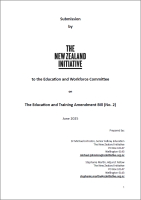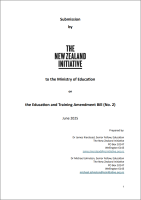Podcast: Reimagining student pathways
In this episode, Michael talks to Beth Nalter, a careers counsellor at Saint Dominic's College, about the challenges and limitations of the current education system's approach to vocational training and career pathways for young people. They explore how schools predominantly focus on university pathways, overlooking the value of trades and vocational education, and discuss strategies to provide students with more diverse and meaningful career opportunities. Read more









